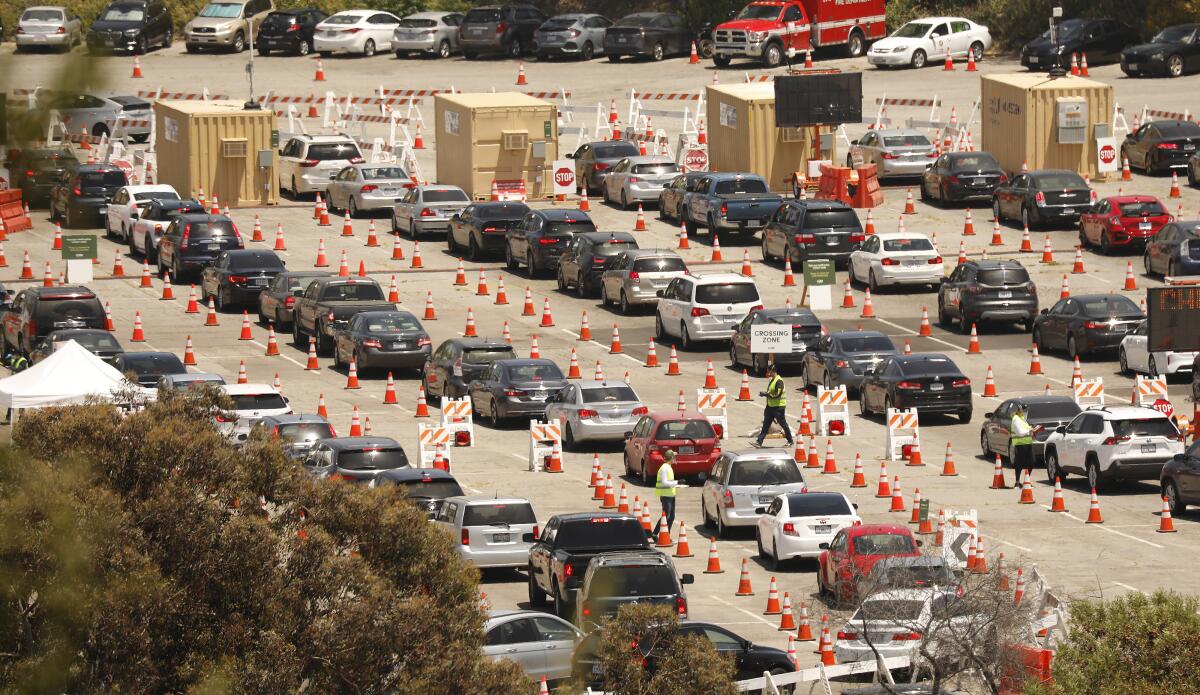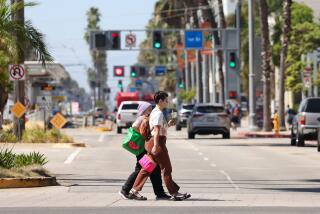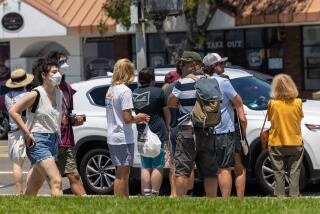The Times is teaming up with other California newsrooms to track COVID-19

To better report on the spread of COVID-19, The Times is partnering with news outlets across California in a combined data-gathering effort.
Since March, The Times has conducted an independent survey of the latest data compiled by the state’s 61 local health agencies. That survey, run continually throughout the day, has supplied the underlying data for this site’s coronavirus tracker, as well as dozens of stories covering the crisis.
The survey’s tallies of cases and deaths can arrive days ahead of numbers published by the California Department of Public Health. The system has won praise from public health officials, who do not dispute its method.
That data collection work will be split between reporters in The Times’ Data and Graphics Department and members of a similar team at the San Francisco Chronicle, who have been conducting a separate, parallel survey.
The group will be joined by data journalists at the San Diego Union-Tribune, KQED, KPCC, CapRadio and CalMatters. They will use the pooled data as the basis for their independent work, and plan to partner in further efforts to gather, organize and release data tracking COVID-19 in California. Also joining is Big Local News, a project of the Stanford Journalism and Democracy Initiative, which will help Stanford students and journalists at smaller outlets access the data.
The Times database is already available on Github, a popular website for hosting data and computer code. The files are updated daily at github.com/datadesk/california-coronavirus-data.
Those data are also being put to use by groups outside journalism. They have been integrated into medical surveillance tools by experts at UCLA and UC San Francisco, and used for research into racial disparities by the Advancement Project.
The data are free for personal, non-commercial use, though some restrictions apply. For instance, reselling the raw data is prohibited. Terms of use are spelled out on Github.
The latest data from across the state.
More to Read
Sign up for Essential California
The most important California stories and recommendations in your inbox every morning.
You may occasionally receive promotional content from the Los Angeles Times.












